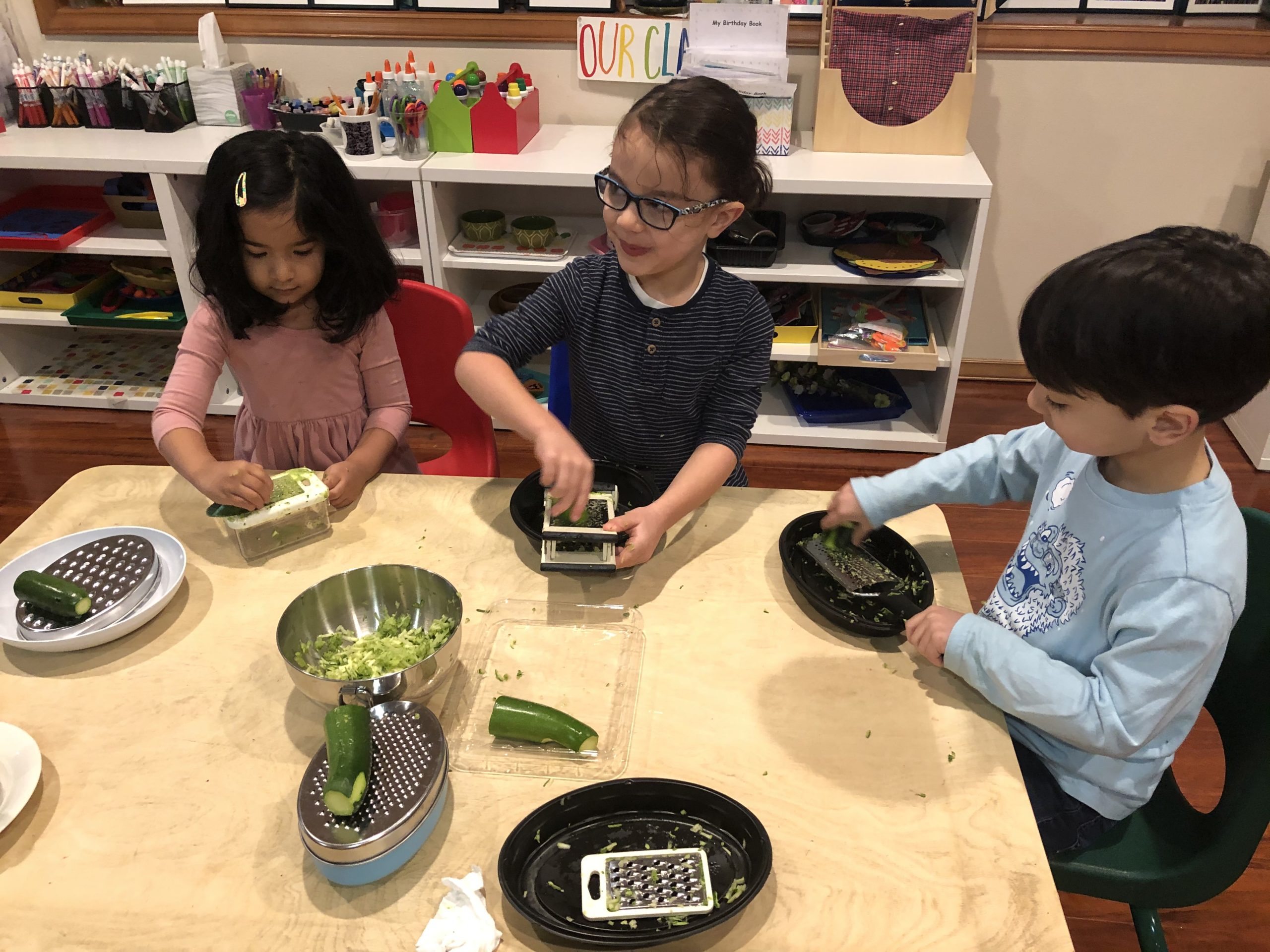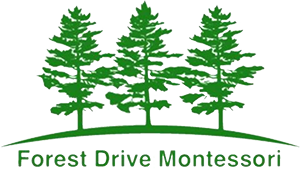Our Montessori Program
-Maria Montessori
Montessori Curriculum
Our curriculum is based on the research and findings of Dr. Maria Montessori (1870 – 1952). Montessori evolved a philosophy of human development that would later spark major educational movements and influence child development approaches throughout the world.
Montessori’s method is structured around, and promotes, the child’s natural, self-initiated impulse to become absorbed in a rich environment and to learn from it. Based on her observations, Dr. Montessori developed specific materials, techniques and curriculum areas that assist each child in reaching his or her full potential.
We provide a calm, secure, stimulating and warm environment where the children’s physical; intellectual; social; emotional and language skills are allowed to progress and develop further as they each reach their individual potential. The program is well integrated so each piece of material is complete in itself but also interrelated to other areas of the curriculum. This allows a child to progress at his/her own individual rate. The curriculum fosters independence, initiative, respect and provides opportunities for the child to focus and the joy of learning.
Practical Life
Practical Life
Upon admission to the Forest Drive Montessori our children are given the opportunity to develop important life skills which allow them greater freedom in the classroom; an opportunity to further develop their self-esteem; social skills; concentration and independence.
The activities are generally grouped into four areas of learning
Exercises for increasing mastery and co-ordination of movement, e.g. pouring, spooning, folding, opening bottles and walking on the line.
Exercises for the care of the environment, e.g. dusting, sweeping, cleaning.
Exercises for the care of self, e.g. polishing, tying shoes, fastening dressing devices.
Exercises of grace and courtesy, e.g. greeting people, saying please, excuse me, and thank you, blowing the nose, looking after others, and how to ask for help.
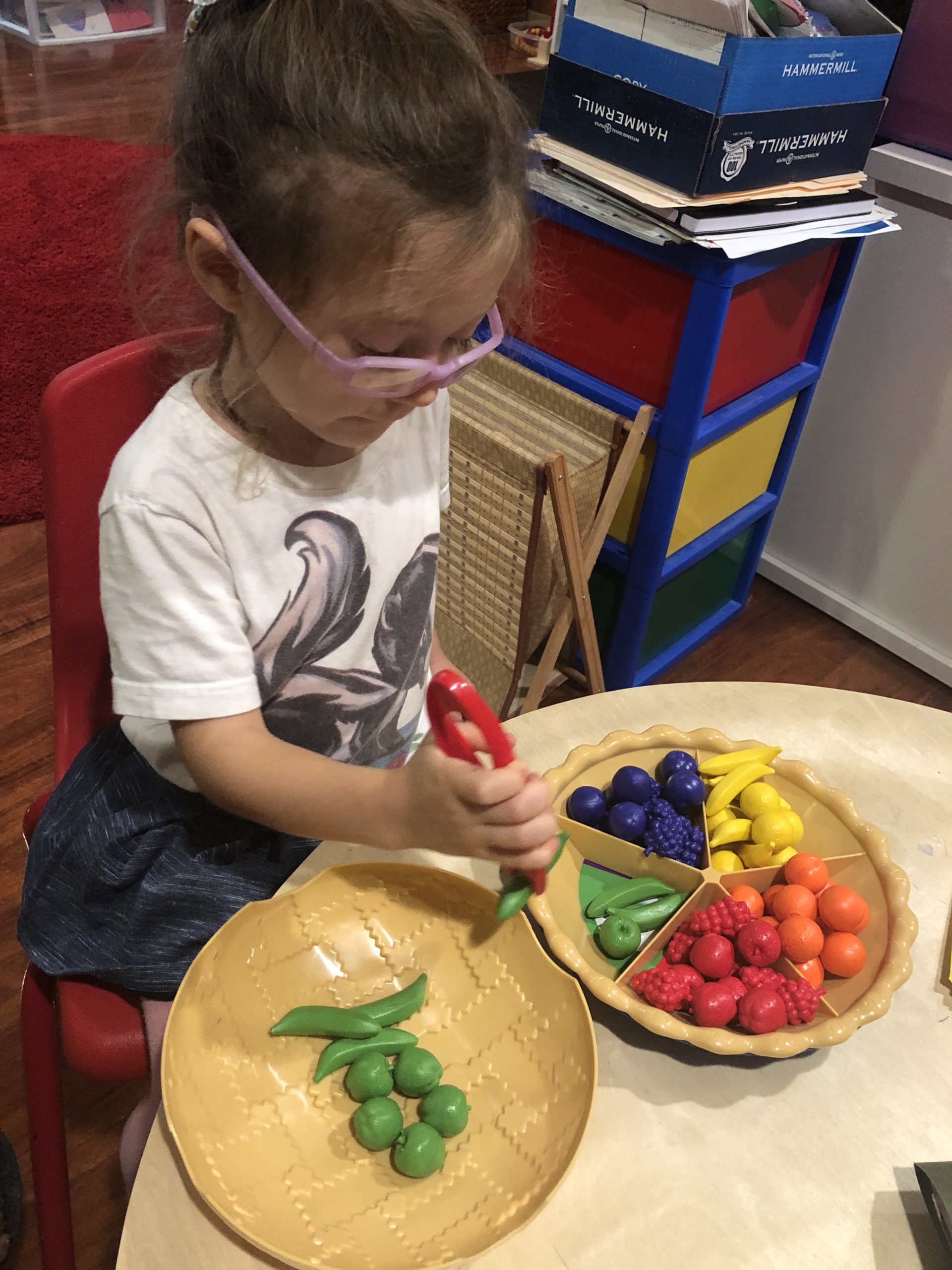

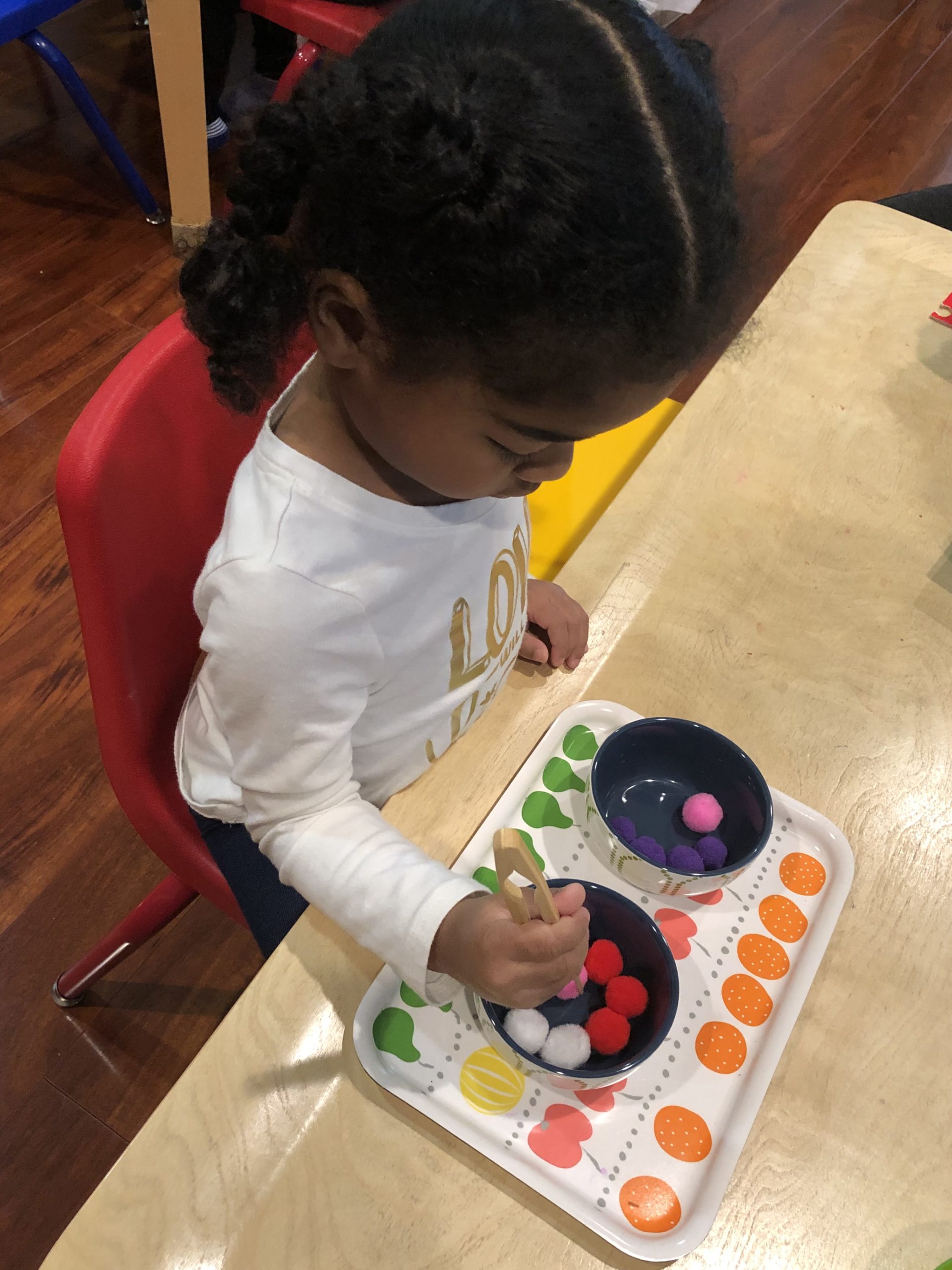

Sensorial
Sensorial
Children interact with the physical world through their senses. The Sensorial curriculum is designed to help the child to focus his/her attention more carefully on the physical world, exploring with each of his/her senses the subtle variations in the properties of objects.
Each material isolates one concept for the child to discover such as height, width, aroma, taste, weight, texture, temperature, shades of color and sound. Each exercise has a built in ‘control of error’ that allows the observant child to check and correct his/her own work. Problems are solved independently without unnecessary adult intervention. This builds the child’s self-confidence, critical thinking skills and gives the satisfaction that only comes from accomplishment.
The sensorial materials provide “materialized abstractions” that are the groundwork for the concepts of number and numeral. The sensorial area gives the child a perceptual idea of basic mathematics. It is indirect preparation for the language (sound discrimination, visual perception, eye-hand coordination) and the cultural areas (awareness of classification).

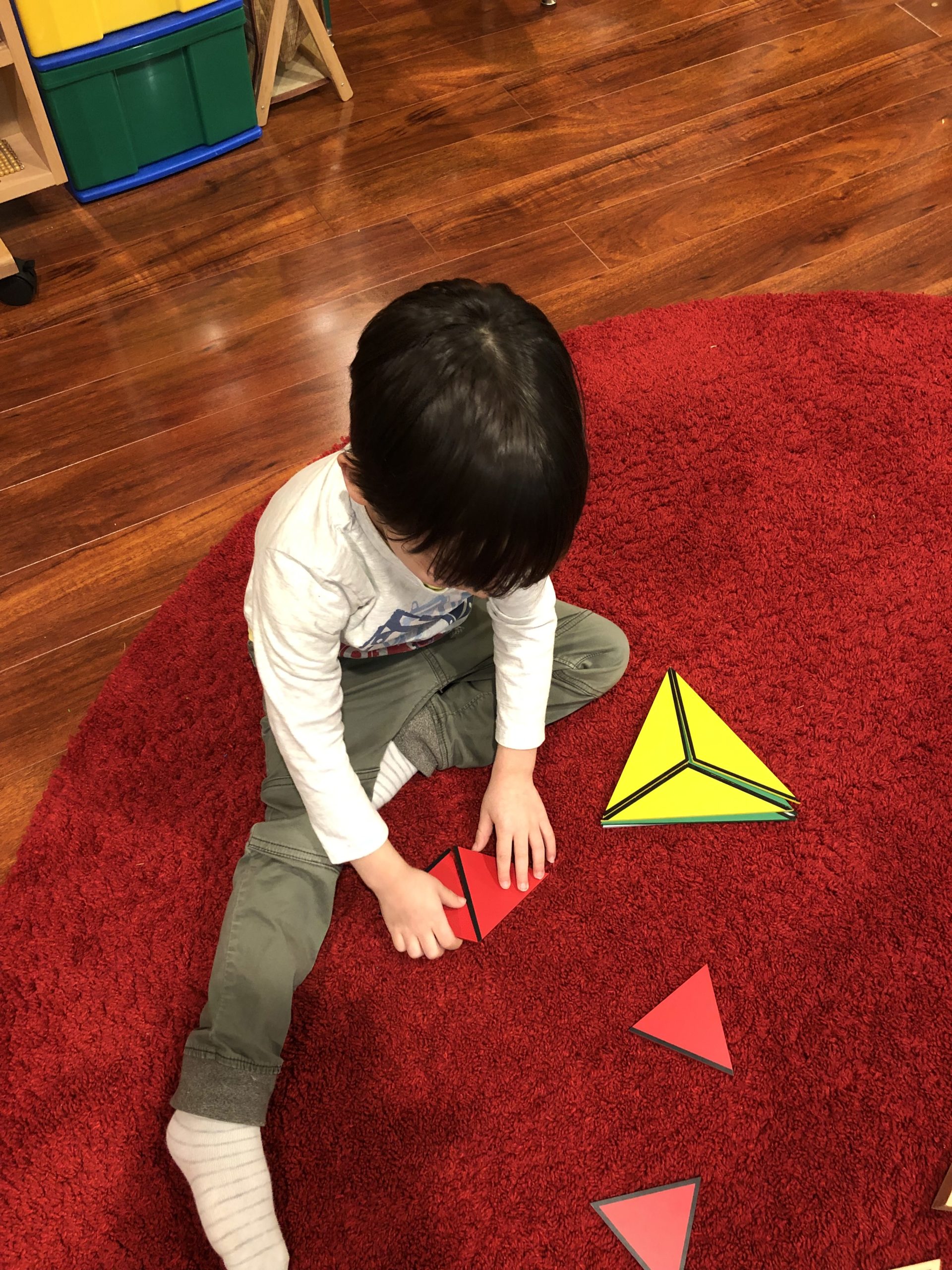

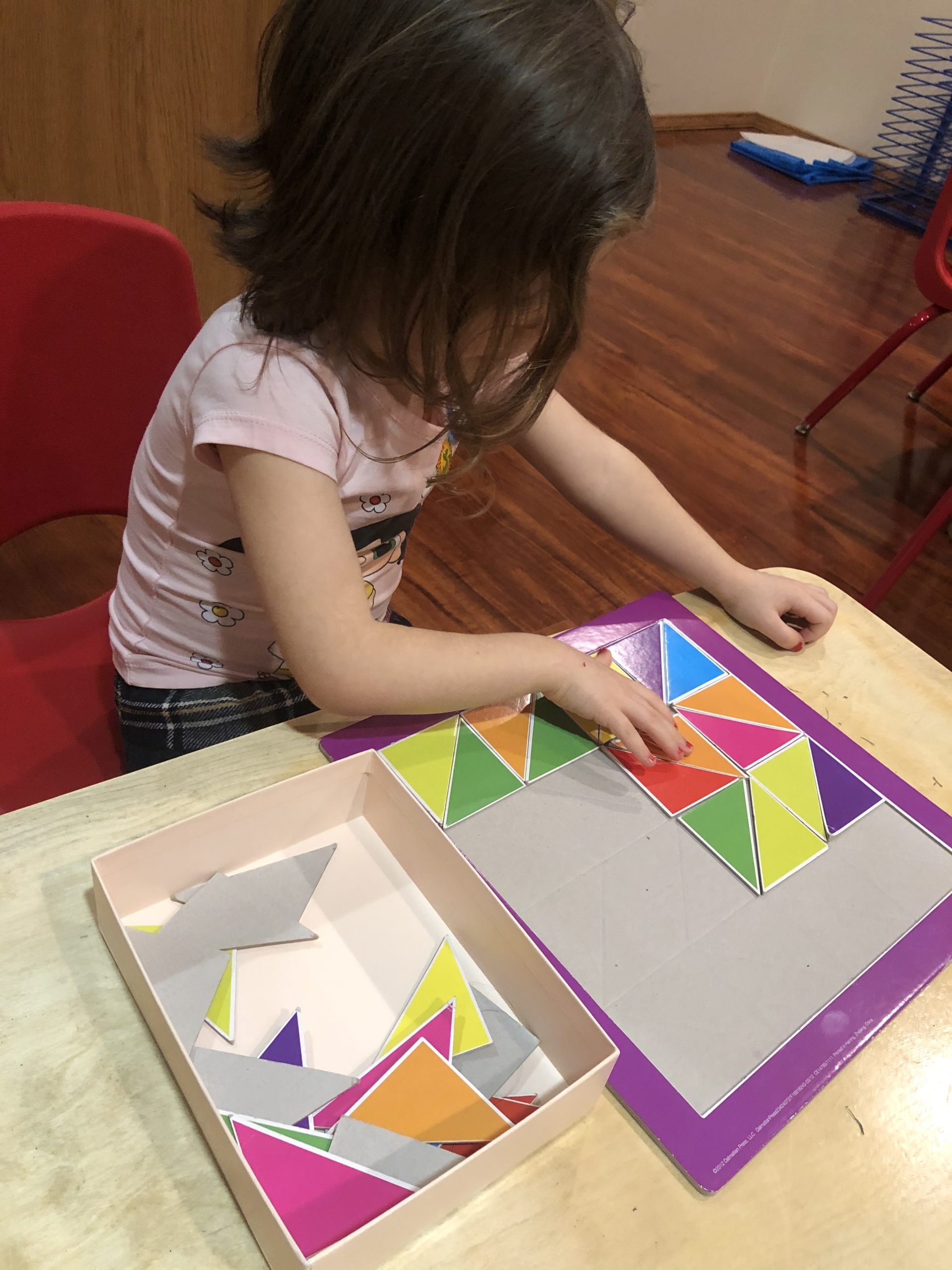
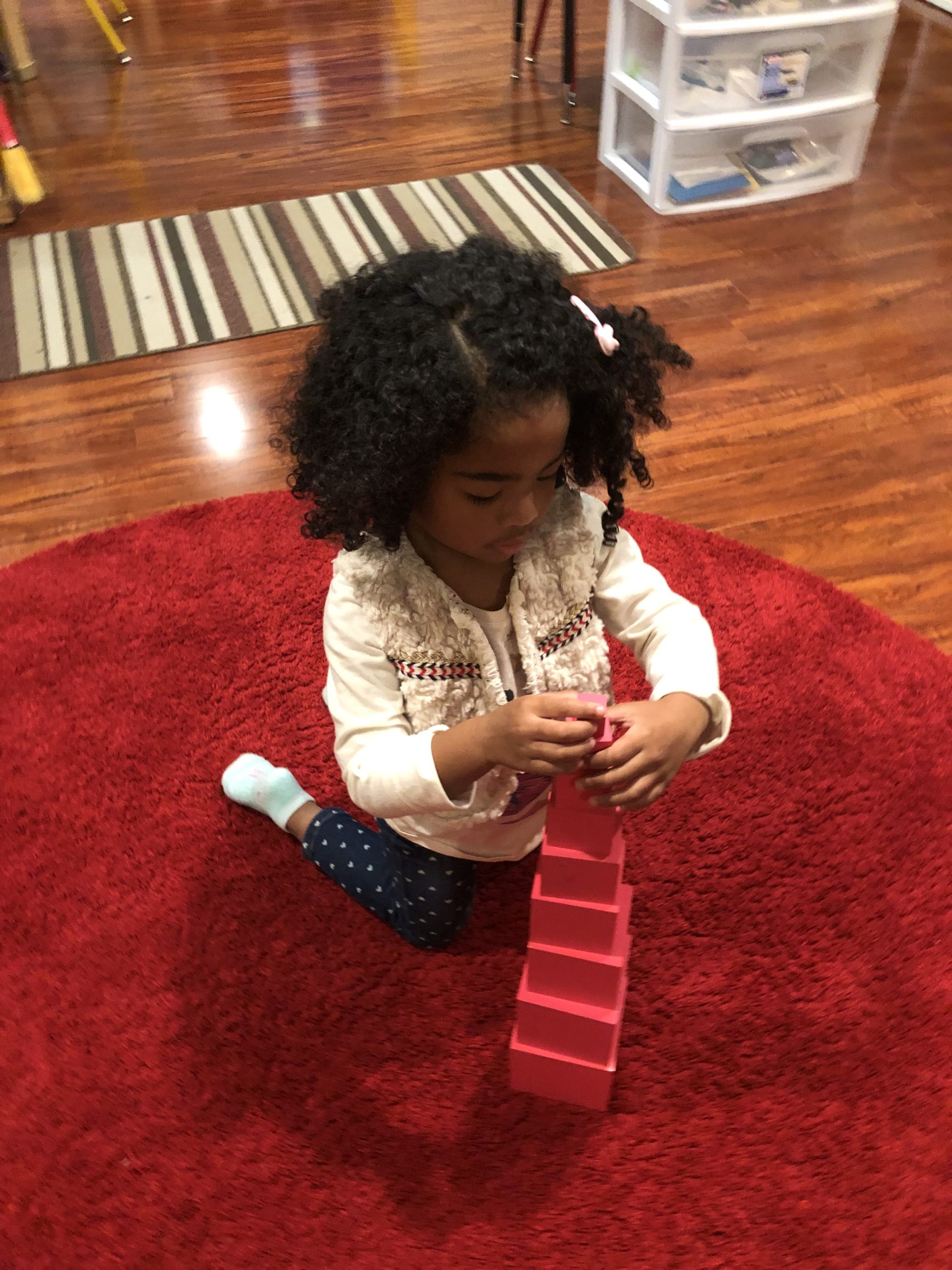
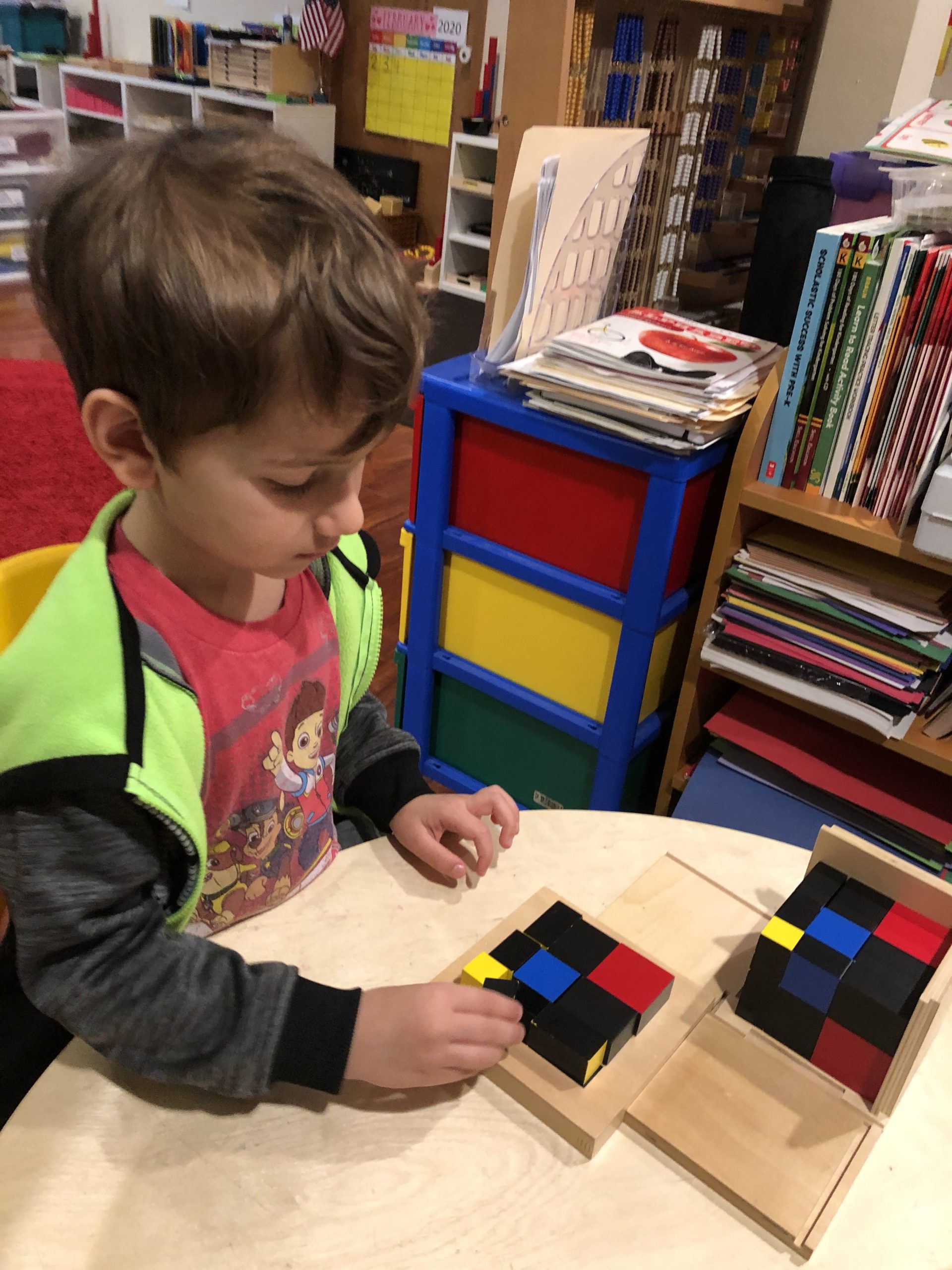
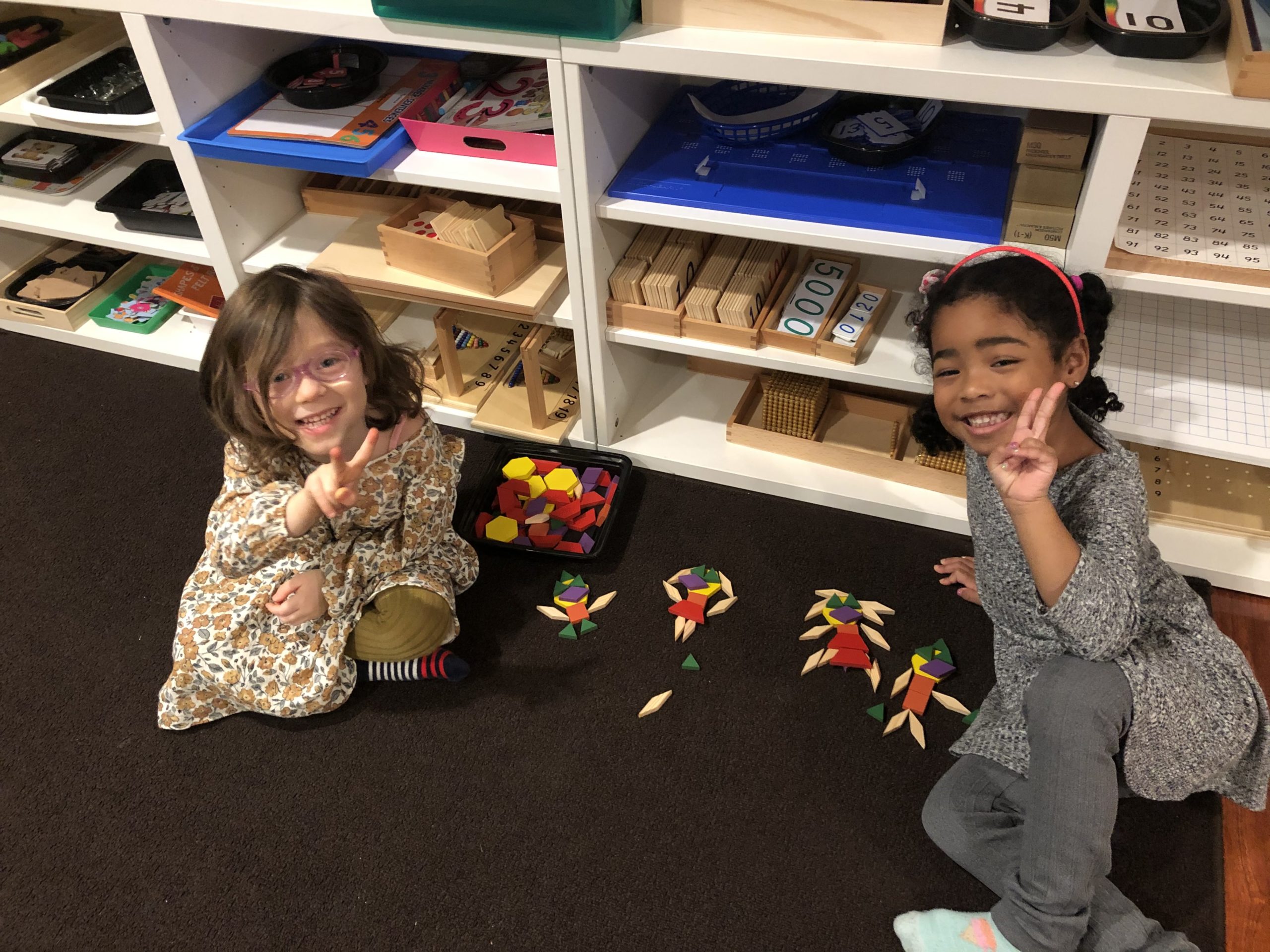

Communication, Language, and Literacy
Communication, Language, and Literacy
The young child enters school during a period of great sensitivity to language. Language development, its usage and vocabulary are therefore woven throughout the classroom. Conversations with peers and adults are a natural part of classroom life and time is devoted every day to the reading of books, singing of songs and stories and sharing. The child moves freely within the Forest Drive Montessori environment. Combining the child’s natural curiosity with hands-on activity helps the child internalize information. The language program encourages the development of oral language, auditory, writing and reading skills.
Opportunities for oral expression are provided daily. The children listen to and participate in familiar and new stories, rhymes, and songs. These activities also lend themselves to dramatic expression. Sharing and talking about group and individual experiences allow the children other opportunities for conversation.
Our teachers read aloud to the children regularly. The children’s listening skills are further developed through music, appropriate questioning, storytelling, sharing time, CDs, and sound matching activities. The Montessori language materials isolate letter sounds, show correct letter formation and reinforce the sound/symbol connection.
Our teachers are constantly modelling writing through activities such as: group experience stories, child dictated stories, adapted work, transcribing the child’s description of his/her art work, and daily functional writing. Children are encouraged to use writing materials throughout the classroom. Following Dr. Maria Montessori’s premise, writing precedes reading. Accepting the child’s own spelling and letter formation affirms and promotes the child’s writing. Before the child is ready for a pencil, using the movable alphabet allows the child to write personal stories.
Reading is presented with a phonetic base, sight word vocabulary and group language activities which encourage the children to become aware of words, sentences, beginning punctuation, content, authors, illustrators and publishers.
Each child enters school with different language experiences and abilities and adds to them daily. Montessori’s individualized approach and developmentally appropriate lessons help the child build cognitive language skills. The absorbent mind of the child readily soaks up these experiences and brings about a natural maturation in language. We welcome children who are multi-lingual in our setting.
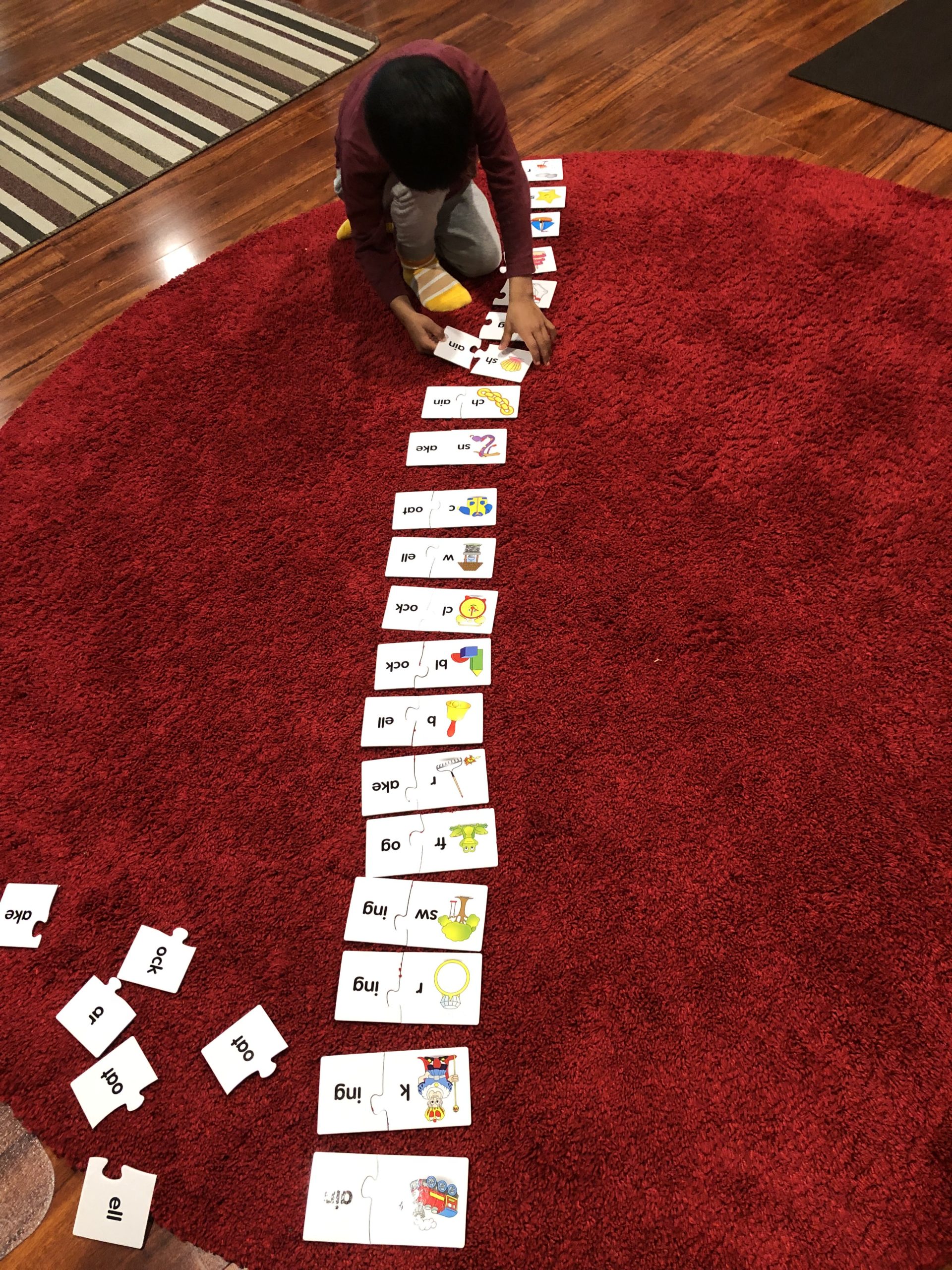


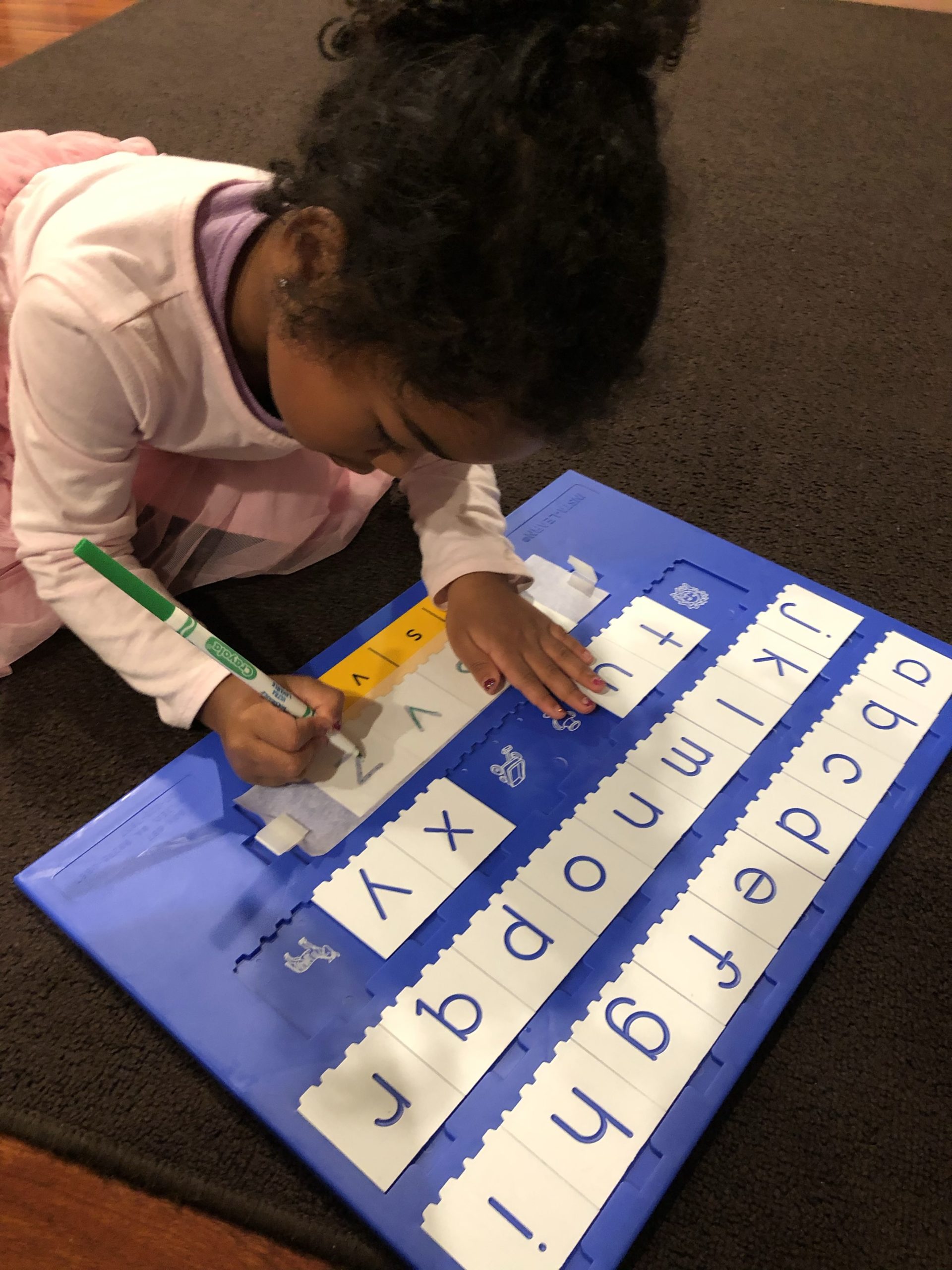


Mathematics
Mathematics
Children must have a multitude of sensorial experiences with size, dimension, and form before they are introduced to any mathematical concepts of quantities and their symbols. Before formal lessons in math, children need to be able to compare, classify, pattern, map, and be familiar with the idea of sets. Many exercises are thus designed to lead the child to discover similarities and differences – to sort and arrange objects in one-to-one correspondence, and to manipulate sets of objects. The child needs to experience many opportunities to rote count after which he or she is ready to begin working with materials to associate quantity with mathematical symbols.
Once the child is familiar with the association of quantity and symbols 0 – 10, an overview of the base 10 decimal system with numerals 0 – 9999 is begun. The children then work with the squares and cubes of sets of numbers 1 to 10.
The Montessori approach to math is special for many reasons. All the operations learned in math come from concrete manipulations of our materials such as rods, beads, spindles, cubes, cards and counters to mention a few. The children do not merely learn to count; they are also able to visualize the whole structure of our decimal system and to perform the operations of addition, multiplication, subtraction and division using a variety of concrete materials to manipulate.
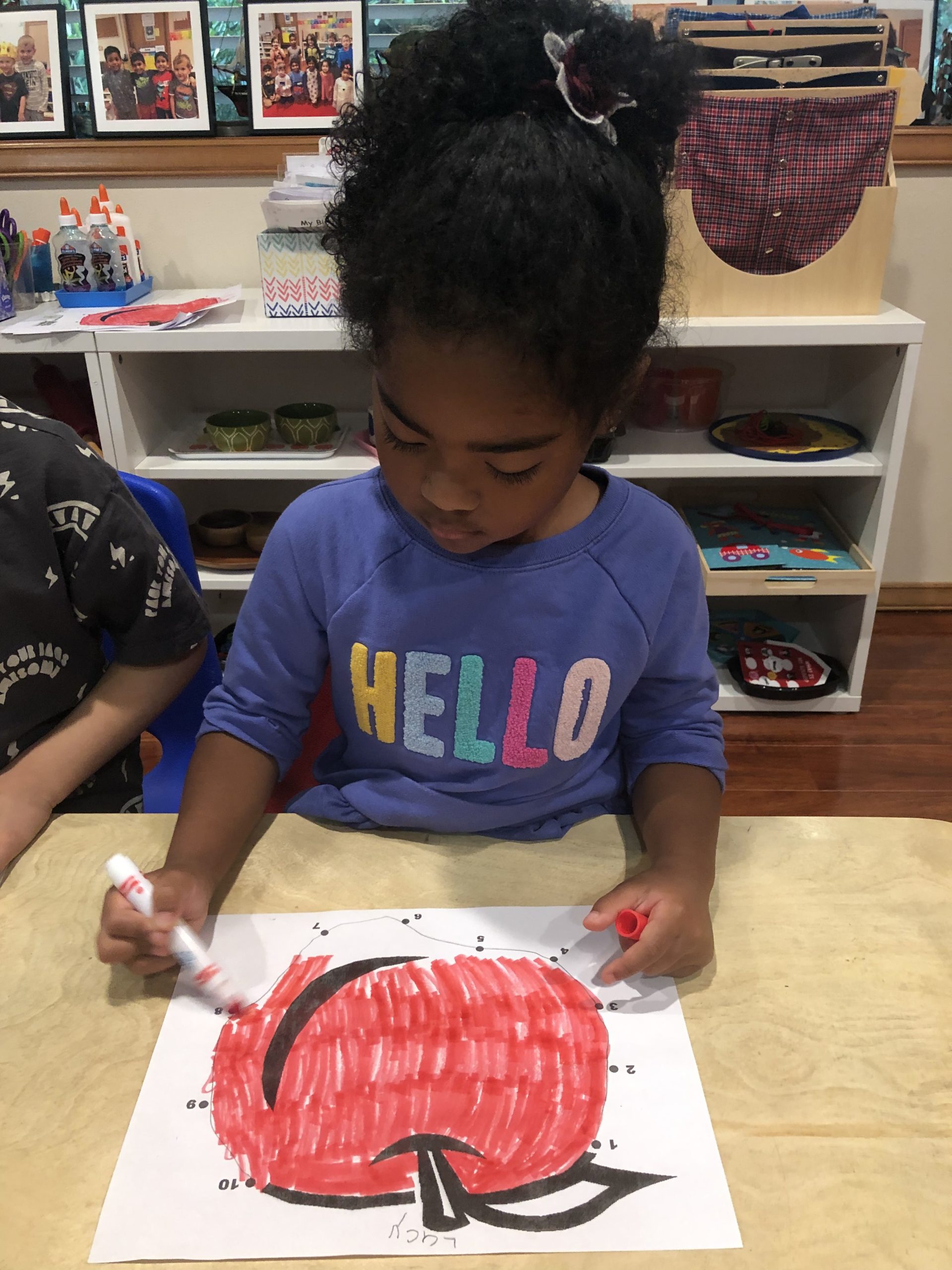

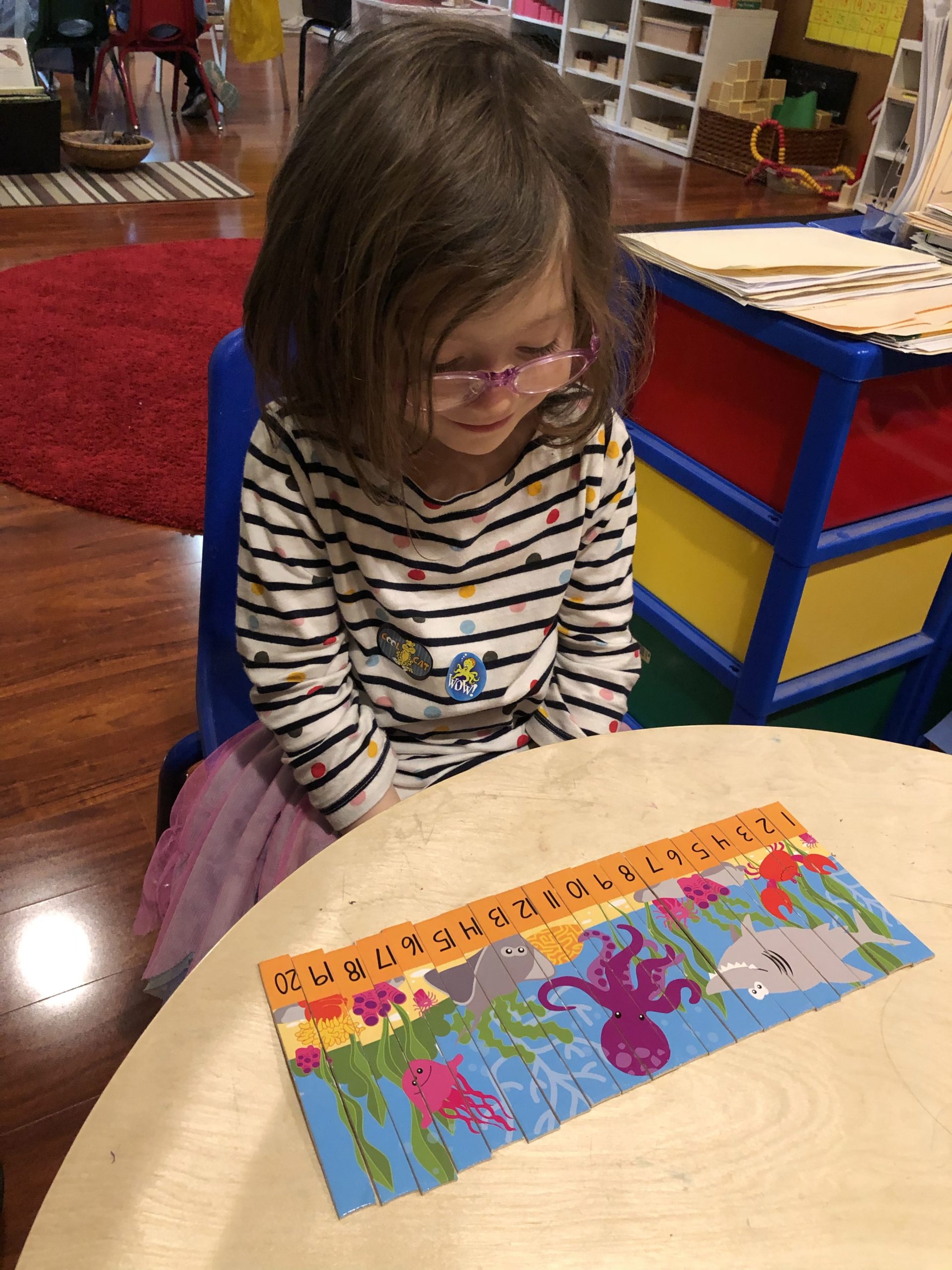


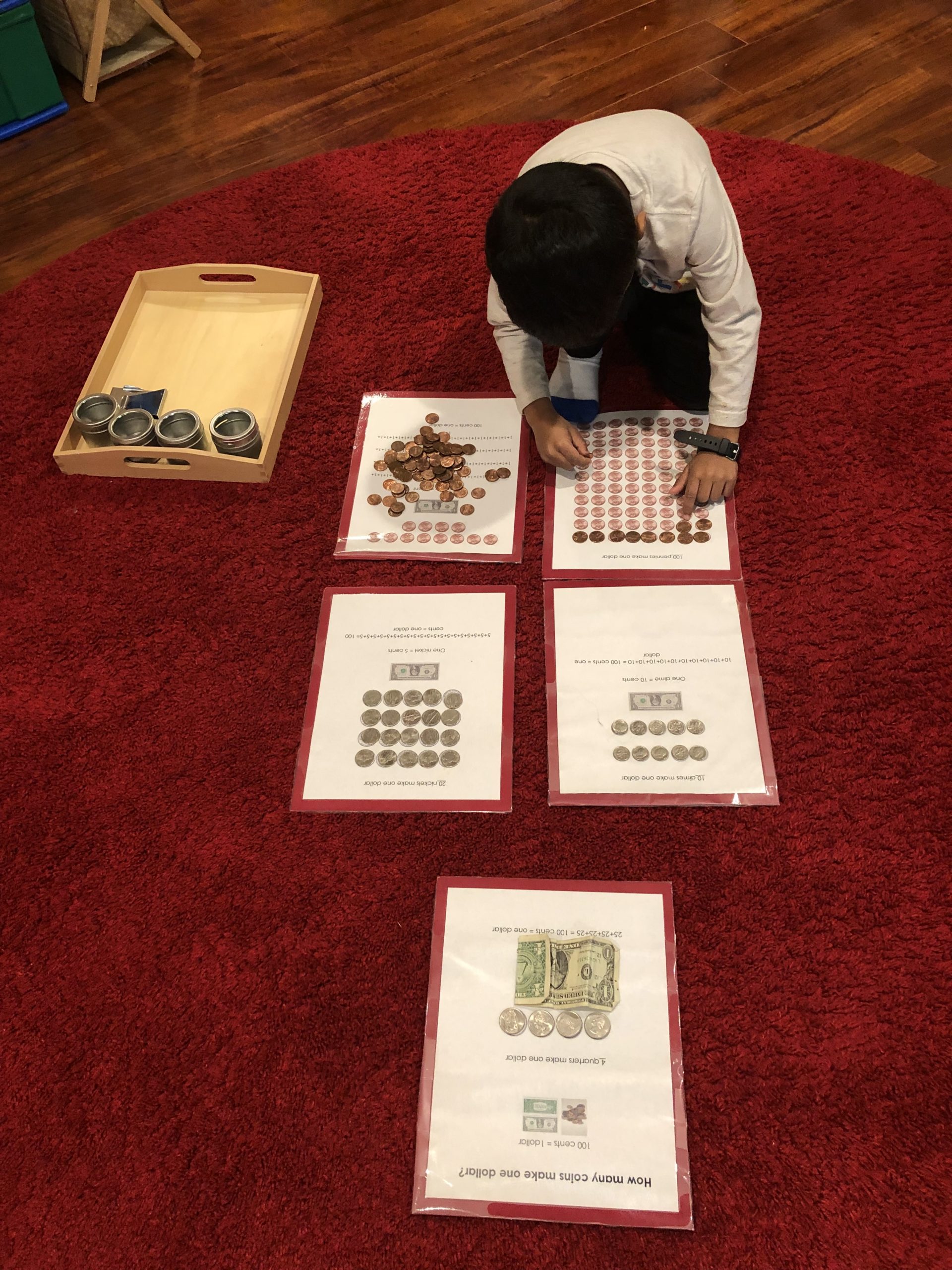

Knowledge and Understanding of the World
Knowledge and Understanding of the World
In the Cultural area, the child is introduced to aspects of the world using a hands-on approach. This allows the child to absorb information in a natural manner, encourages the child to observe what goes on around him/her, and helps the child to begin to make sense of it all. In addition, learning the true names of real things and seeing relationships is a meaningful way for the child to begin to understand and view the world.
In Life Science the child uses models, specimens, pictures, classroom pets and plants to begin to identify, match, and classify things in the environment. There is some investigation of the external parts of vertebrates and plants using observations of living samples and specimens and nomenclature materials. Life cycles of plants and animals are introduced through classroom observations and sequence cards.
Earth Science includes the naming, matching and sorting of rock and mineral specimens and daily observation and recording of the weather.
In Physical Science the child has hands-on experiences in the investigation and observation of matter such as in Sink/Float or Magnetic/Non-magnetic activities.
Astronomy is introduced concretely in our “Birthday Celebration”. The child symbolically walks around the sun for every year of their life.
Geography includes an introduction to the Geo-sphere (land, air and water) the land/water and continent globes, puzzle maps of the world and individual continents, mapping activities, land and water forms, and an introduction to climate/environment areas of the world. The study of the continents gives hands-on experience in making maps and flags, dressing in costumes, music, dance, art, stories and dramatizations and the investigation of a people through artefact boxes and the occasional guest speaker.
History includes personal time-lines and time-lines of plants and animals, and the study of the passage of time with clocks and timers.




Art & Music
Art and Music
The children have access to a diverse range of materials with which to express themselves. Drawings, painting, crayon work, collage, working with clay, cutting, pasting, designing, modeling and many other activities help them to explore their imaginations and to share their thoughts and feelings with others.
The children have access to a diverse range of materials with which to express themselves. Drawings, painting, crayon work, collage, working with clay, cutting, pasting, designing, modeling and many other activities help them to explore their imaginations and to share their thoughts and feelings with others.


Physical Development
Physical Development
In the Forest Drive Montessori the physical well-being of our children is paramount. We are very committed to helping all children develop their fine and gross motor movement. At pre-school age this is typically through movement, dance and exercises that promote balance and physical control.




Cooking and Nutrition
Cooking and Nutrition
Our children learn the basic food groups and their names through hands on activities and classification cards with real food. They also prepare a variety of foods monthly from different parts of the world to try as snacks during the day.
